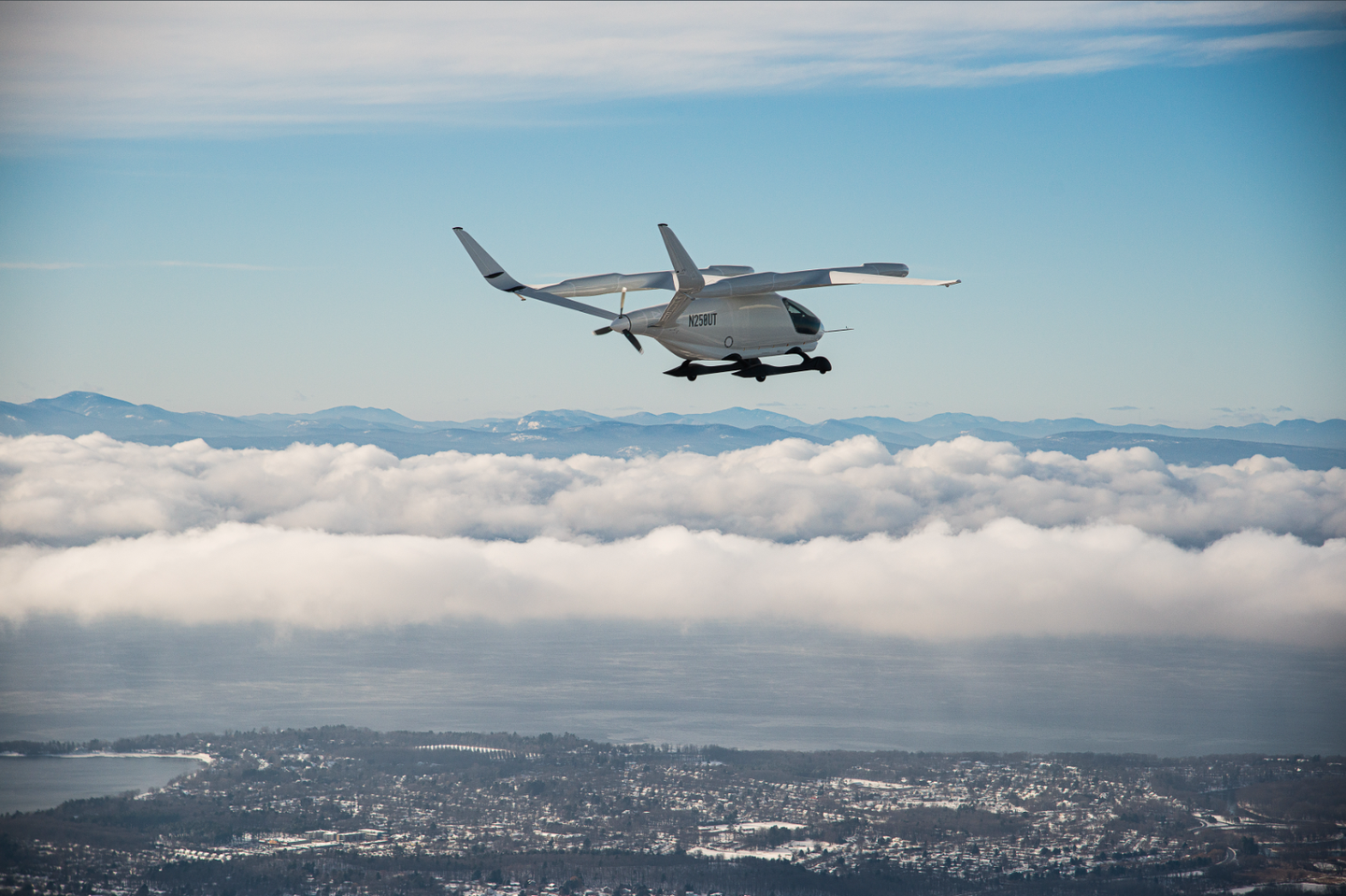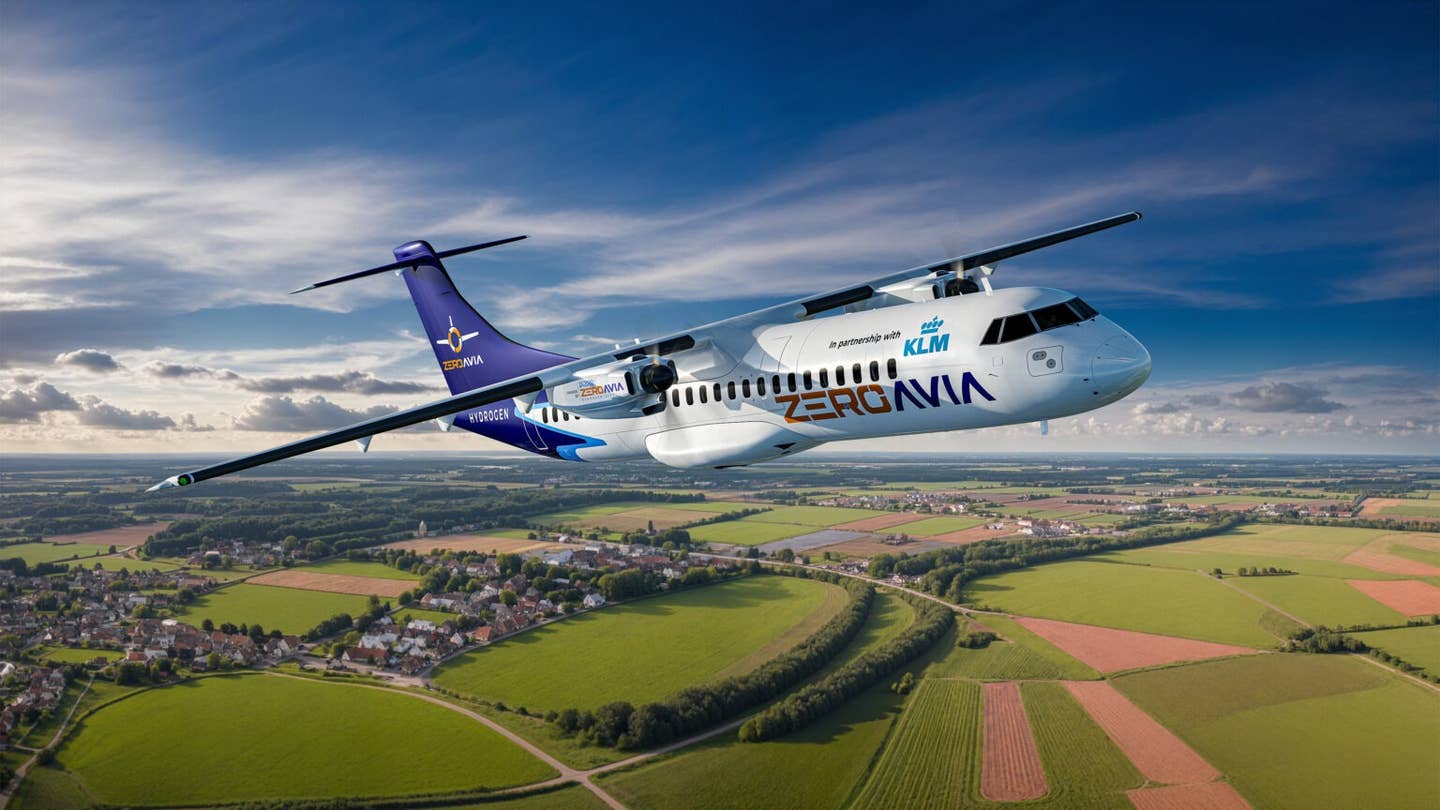
Vermont-based Beta Technologies is working toward FAA type certification for Alia by 2024. [Courtesy Beta Technologies]
Vermont-based Beta Technologies announced Monday it has won a U.S. Army contract to support flight testing of its Alia electric vertical takeoff and landing aircraft.
The partnership eventually aims to help the Army test specific military cargo and logistics missions for eVTOLs, while allowing Beta to accelerate development for both military and civil applications.
The Army contract isn’t Beta’s first partnership in the military sector. In 2020, it joined the U.S. Air Force’s AFWERX Agility Prime program, specifically designed to accelerate development of the emerging eVTOL industry.
“This partnership with the Army marks another important step in the military’s commitment to advancing and adopting sustainable electric aviation solutions,” said Beta founder and CEO Kyle Clark in a statement. “We’re gratified by the continued support of the sector, and this allows us to accelerate our development of Alia as an incredibly safe and reliable logistics aircraft for both military and civil applications.”
Initially, Army engineers and Beta's team plan to evaluate how Alia might best be applied to specific missions by measuring its range, altitude, endurance, and payload limits.
About the Aircraft
First revealed in 2020, Alia is Beta’s second-generation eVTOL test article. It’s a single-prop pusher with a 50-foot wing and V-tail. The aircraft achieves vertical lift during takeoff and landing from four fixed rotors. Alia is being developed for multiple roles, including cargo, medical transport, and passenger transportation. Beta says the aircraft will be capable of carrying a pilot and cargo—or four passengers—as far as 250 nm on a single charge. Maximum takeoff weight (MTOW): 6,999 pounds.
According to Beta, Alia set industry records last year, flying 205 nm on a single charge and reaching an altitude of 8,000 feet. The aircraft has flown multiple times between New York’s Plattsburgh (KPBG) airport and Beta’s headquarters at Vermont’s Burlington International Airport (KBTV).
About Beta Technologies
Although it doesn’t expect to achieve FAA aircraft type certification for Alia until 2024, Beta has already announced purchase agreements with UPS Flight Forward (NYSE:UPS) and Blade Urban Air Mobility (NASDAQ:BLDE). Also, Alia received the U.S. Air Force’s first airworthiness approval for a crewed eVTOL last year.
The privately held, venture capital-backed company announced last year it had raised $368 million in Series A funding, led by Fidelity Management and including Amazon’s Climate Pledge Fund. Beta also received an initial tech sector investment last year from UP.Partners, a group of serial aviation and tech entrepreneurs.
An Electric Transportation Ecosystem
Beta sees itself as much more than an aircraft developer. It has plans to integrate its eVTOLs as part of an electric transportation ecosystem.
Based on the idea that electric aircraft will need viable infrastructure for charging batteries and other services before it can be fully successful, Beta already has started working to establish a multi-state network of charging stations designed to serve all electric vehicles, including cars, trucks, as well as aircraft. The company plans to build the stations across the eastern U.S., according to a map on its website.
At its Vermont headquarters, Beta has built what it says will be the first of many eVTOL recharging pads. The structure includes a landing pad for eVTOLs above the structure, which consists of crew quarters, a crew rest area, and a control center.

Subscribe to Our Newsletter
Get the latest FLYING stories delivered directly to your inbox






